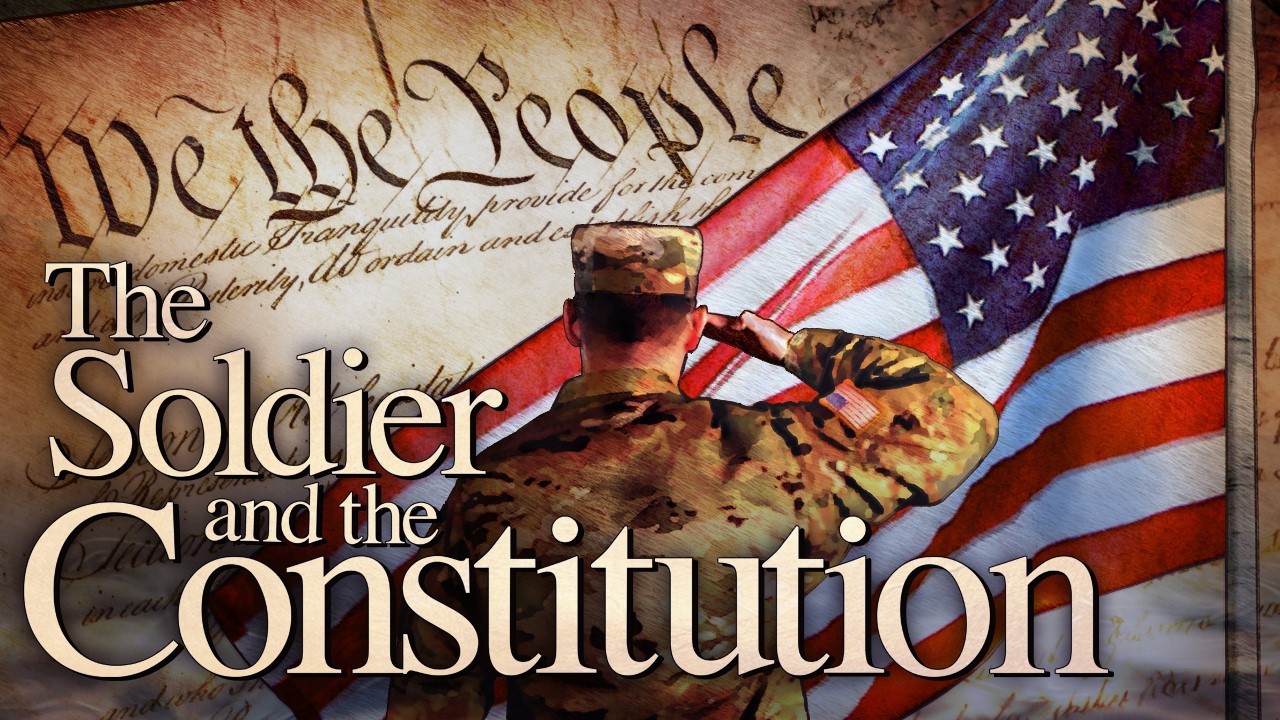Military leaders do not typically spend a great deal of time reading about, reflecting on, or studying civil-military relations. From the time we enter the military to the time we exit, it is not something we are required to do. We do not take significant time to truly understand a bedrock principle upon which our democratic system of government is founded—the principle of civilian control of the military. We now find ourselves bearing the fruits of this neglect.
Each presidential election, we see military service members actively engage in partisan political behavior, either intentionally or out of ignorance to military rules and regulations. Retired military leaders will openly endorse political candidates from both sides of the political spectrum. We see military service members in uniform attending partisan political events, posting partisan commentary on social media, and potentially giving the impression that the military institution may support a specific candidate. As this behavior has increased over the past few decades, we have seen the trust and confidence Americans have in our military decline.
Although trust and confidence in the US military has declined, it is still regarded as one of our most respected institutions in American life. To help safeguard and ensure a healthy relationship with the American public and to promote a democratic, nonpartisan ethic, the US Army’s premier publishing house, Army University Press (AUP), initiated a project that honors and commemorates September 17, 2024, recognized as “Constitution Day.” This project was entitled, “The Soldier and the Constitution,” and provides military service members with a film and recommended reading to help educate us on our duties and responsibilities while serving on active duty.
The film and the recommended reading were developed in partnership with leading scholars at the US Naval Academy and Georgetown University. Together, these products provide a tailored training and education package reinforcing longstanding tradition and principle; a nonpartisan military ethic; and rules and regulations that govern active duty service members in a democratic civil-military relationship. It was important to work with the US Naval Academy and Georgetown to provide perspective and input not only from more than one military service, but from a leading civilian academic institution, as well.
US Navy Captain Dr. Dave Richardson and Georgetown University professor and retired US Army Colonel Dr. Heidi Urben, a former faculty member of West Point’s Department of Social Sciences, cowrote the script of the film. The team at Army University Press and Army University Films produced the video. The team at Army University Books, working closely with Dr. Urben, prepared the recommended reading that will be a chapter in a forthcoming book, Civil-Military Relations: A Primer. The reading is entitled, “Instilling the Nonpartisan Ethic at the Unit Level.”
The team of contributors behind the making of this film and recommended reading hope that these products will be used as intended—educating our military on basic civil-military relations principles that ensure our democracy’s strength and resilience, particularly during periods of increased partisan polarization and division.
In a March 15, 2023 interview, former Chairman of the Joint Chiefs of Staff Admiral Mike Mullen described American society as being caught up in a confusing time. Truth and facts are often hard to discern behind a web of disinformation that can create distrust and uncertainty. It is precisely during these times that Americans need to know they can trust national leaders. Behind our national leaders stands the strongest military in the world. It is a strong military that, in many ways, gives legitimacy to our democratic government.
Protecting our military from the blight of partisanship and partisan behavior—as well as the perception of it—is essential to maintaining the trust and confidence of the American public. Americans must be assured that the military’s oath and relationship to the Constitution—not to political party or personality—is unshakeable. This project, “The Soldier and the Constitution,” is a small effort made to educate and inform our military institution. We also hope that it sends a reassuring message that reinforces the military’s commitment to a nonpartisan ethic, civilian control, and healthy civil-military relations.
We hope that military service members from across the military at every level will watch our film, accompanied by the recommended reading, and share it with their colleagues and friends, their unit, and their subordinates, peers, and senior leaders.
Colonel Todd Schmidt, PhD is the director of Army University Press and executive producer of Army University Films. He serves as a senior fellow for the Simon Center for the Professional Military Ethic at West Point and is author of the book, Silent Coup of the Guardians: The Influence of US Military Elites on National Security.
The views expressed are those of the author and do not reflect the official position of the United States Military Academy, Department of the Army, or Department of Defense.
Image credit: Spc. Rashene Mincy, US Army



